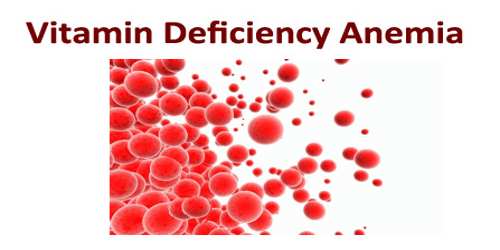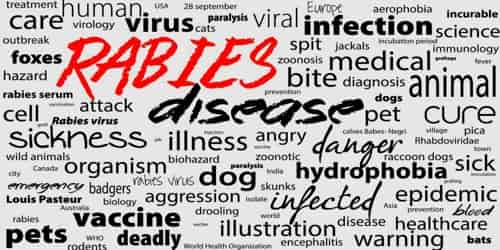Vitamin Deficiency Anemia
Definition
Vitamin deficiency anemia is a lack of healthy red blood cells caused when you have lower than normal amounts of certain vitamins. Vitamins linked to vitamin deficiency anemia include folate, vitamin B-12 and vitamin C. Anemia is a condition in which the body does not have enough healthy red blood cells. Red blood cells provide oxygen to body tissues. The most common initial symptom is feeling tired. Other symptoms may include shortness of breath, pale skin, chest pain, numbness in the hands and feet, poor balance, a smooth red tongue, poor reflexes, depression and confusion. Without treatment some of these problems may become permanent.
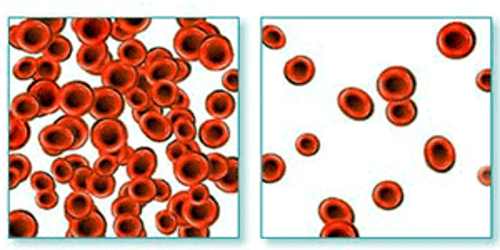
Deficiency of vitamin B12 or folate deficiency most often develops due to a lack of these vitamins in the diet or an inability to absorb these vitamins from the digestive tract. Deficiency of folate (folic acid) is sometimes caused by drugs used to treat cancer.
Not all anemias are caused by a vitamin deficiency. Other causes include iron deficiency and certain blood diseases. That’s why it’s important to have your doctor diagnose and treat your anemia. Vitamin deficiency anemia can usually be corrected with vitamin supplements and changes to people’s diet.
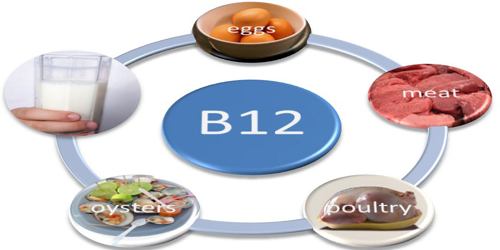
Causes, Sign and Symptoms
Causes of vitamin deficiency anemias, also known as megaloblastic anemias, include:
- Folate deficiency anemia. Folate, also known as vitamin B-9, is a nutrient found mainly in fruits and leafy green vegetables. A diet consistently lacking in these foods can lead to a deficiency.
- Vitamin B-12 deficiency anemia. Most people get more than enough B12 from eating meat, eggs, milk, and cheese. Vitamin B12 cannot be produced by the human body, and must be obtained from the diet. When foods containing B12 are eaten, the vitamin is usually bound to protein and is released by proteases released by the pancreas in the small bowel. Vitamin B-12 deficiency can also be caused by a tapeworm ingested from contaminated fish, because the tapeworm saps nutrients from our body. However, a vitamin B-12 deficiency is most often due to a lack of a substance called intrinsic factor.
- Vitamin C deficiency anemia. Vitamin C deficiency can develop if we don’t get enough vitamin C from the foods we eat. Vitamin C deficiency is also possible if something impairs our ability to absorb vitamin C from food. For instance, smoking impairs our body’s ability to absorb vitamin C.
Signs and symptoms of vitamin deficiency anemia include:
- Fatigue
- Shortness of breath
- Dizziness
- Pale or yellowish skin
- Irregular heartbeats
- Weight loss
- Numbness or tingling in your hands and feet
- Muscle weakness
- Personality changes
- Unsteady movements
- Mental confusion or forgetfulness
Vitamin deficiencies usually develop slowly over several months to years. Vitamin deficiency symptoms may be subtle at first, but they increase as the deficiency worsens.
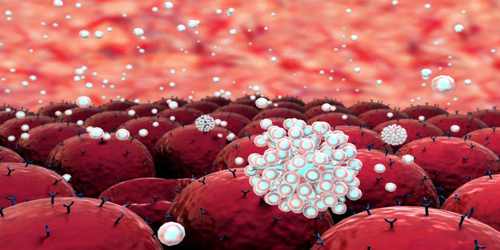
Diagnosis and Treatment
Once blood tests show a person has anemia, tests are done to determine if a deficiency of vitamin B12 or folate is the cause. Anemia due to vitamin B12 or folate deficiency is suspected when large (macrocytic) red blood cells and multilobed (hypersegmented) neutrophils (a type of white blood cell) are seen in a blood sample that is examined under a microscope. Reduction in the number of white blood cells and platelets also can occur, especially when people have had vitamin deficiency anemia for a long time.
In most cases, folic acid supplements are taken orally. Once patient’s body’s level of folate increases to normal, they may be able to stop taking the supplements. But if the cause of their folate deficiency can’t be corrected, they may need to take folic acid supplements indefinitely.
For milder cases of vitamin B-12 deficiency, treatment may involve changes to patient’s diet and vitamin B-12 supplements in pill form or as a nasal spray.
Treatment for anemia related to vitamin C deficiency is with vitamin C tablets. Additionally, patients increase their intake of foods and beverages that contain vitamin C.
Reference:
